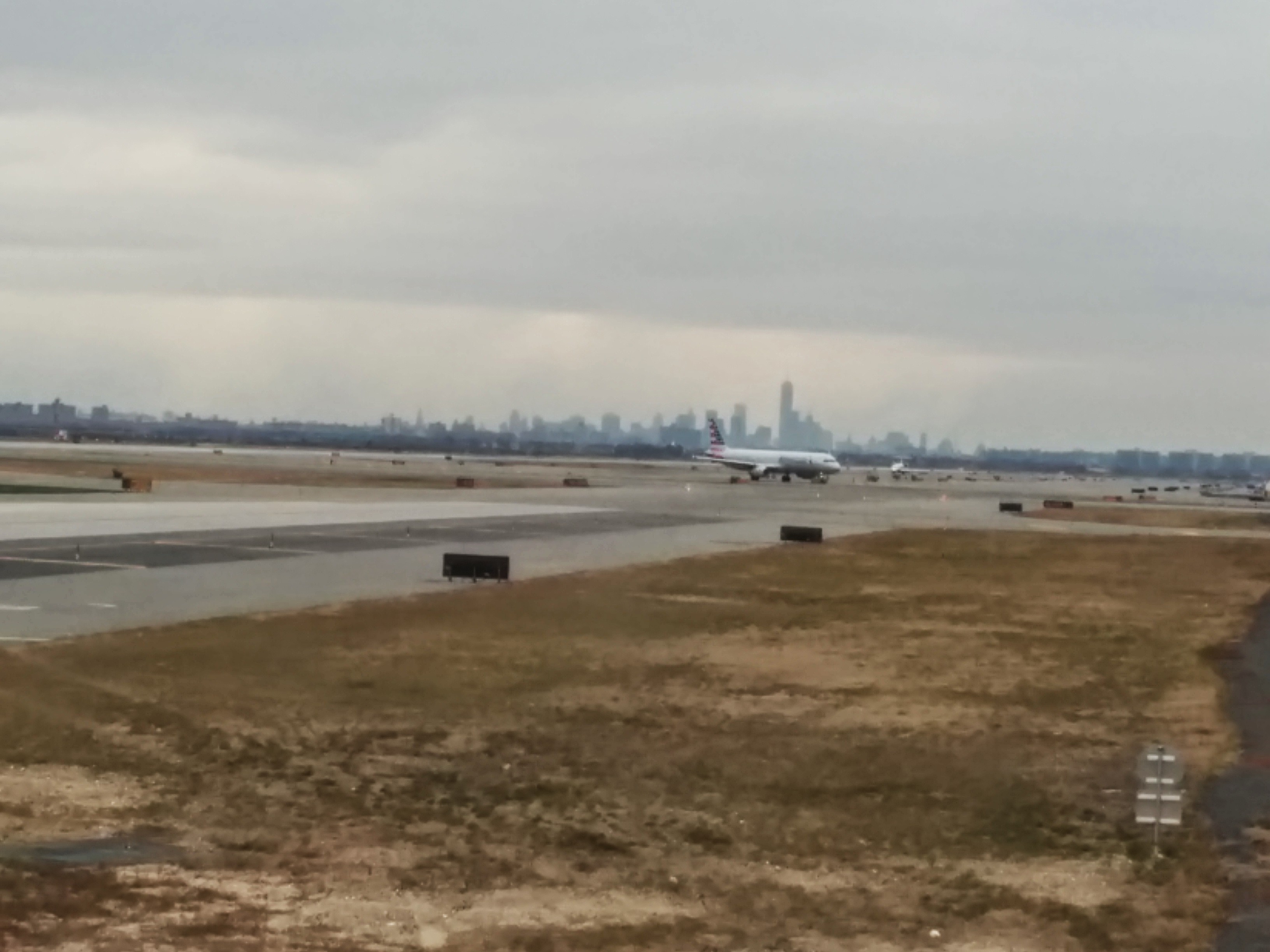I’ve been meditating for the past month, using Headspace (I get it discounted as a Google employee benefit). It’s a series of guided mindfulness meditations hosted by Andy Puddicombe, who sounds like the GEICO Gecko. Each day, the GEICO Gecko tells me to take some deep breaths, leads me through a body scan, reminds me to let thoughts come and go. There are times when I want to do it and times when I very much don’t. But has it been having any effect?
There are few better tests of mindfulness and patience than transit. Yesterday I flew from JFK in New York to Phoenix, on an oversold flight the Saturday before Christmas. I thought of Radiohead:
Transport
Motorways and tramlines
Starting and then stopping
Taking off and landingThe emptiest of feelings
As they announced a last-minute gate change, sending the mass of passengers scurrying across the terminal, I felt the pull of that kind of numb irritation. But I made a choice to approach the experience differently. At that second gate, as an entire planeload of people mobbed the counter, I went to look out the window at the ground crew attaching the terminal ramp to the plane, balancing on a high platform to open the plane door and roll in the food carts, putting down and taking up chocks. I noticed the hashes on the ground for where different models of planes should pull in: 747, 777, Airbus 380, 767, 757. Inside the terminal, a sparrow was darting from window to window. A mother brought her toddler to the window and tried to point out the bird to him, but he was mesmerized by the big metal birds outside.
Getting on the plane, I stood beside the woman who was furious about being in Zone 3 and kept telling the counter staff, with tight-lipped determination, that “overhead space is my biggest concern right now,” as if no one else had luggage and the airline had never had to deal with a situation like hers before. Two different families on the ramp were dealing with crowds of children whose seats were somehow not adjacent to their parents’. On board, the young man next to me was coughing up a lung, and his father in the aisle had an argument with the flight attendant over his already-tagged bag that was supposed to be checked. The cabin was so cold that I kept on my hat and gloves. The pilot announced that our JFK ground time was estimated at 50 minutes.
There was every reason to be sour and annoyed, but somehow I wasn’t. I looked out the window. You could see Manhattan in the distance, the new World Trade Center tower, and the planes taking off in front of us were silhouetted against it. It was beautiful. In the air, I ate my overpriced terminal sandwich, put a travel mix on my headphones and took a nap. I woke up, meditated with Headspace. I tried watching Frozen, but it was terrible, so I turned it off. I looked out the window. By then we were over western Nebraska. There was a stripe of snow, maybe 50 miles wide and hundreds of miles long, across an otherwise undifferentiated flatness of squares and circles, as if a line of clouds had gotten exactly that far and said, “I think I’m gonna go right here.” I thought about how strange it is that I know Seoul and Beijing and Kathmandu better than I’m likely ever to know that farmland, that the chances of finding me in Omaha are far less than the chances of finding me in Phnom Penh or Vientiane. Then the farmland gave way to the layer cake buttes and canyons and the snowy mountains of New Mexico, and after a while that landscape changed into badlands where the icy rivers splayed out like white fractals, and then the land stepped down into the Arizona desert. It was beautiful. I took out my laptop and wrote about it, and I noticed that when I’ve meditated and been sober — the one other time I kept it up was when I lived in Korea — I’ve written more and more freely. I almost didn’t want the flight to end. Almost.
*
There are two related thoughts that transit evokes: that nowhere is anywhere, and that everywhere is everywhere else.
The first thought is the numbness that comes over us, the feeling that we’re in non-space, non-time. It’s easy to feel like a dead thing when you’re in the TSA line. (As Talking Heads put it, “I’m tired of looking out the windows of the airplane / I’m tired of traveling, I want to be somewhere.”)
The second thought is the unnerving feeling that planes and technology are shrinking the world, that there is no escape, that wherever you go will be the same as wherever you left. This illusion is brought on by the weird sameness of airports, airplanes, transit lounges, duty free shops, chain hotels. But these places need to be legible and at least minimally palatable to travelers from everywhere, and they need to be interoperable with planes coming in from wherever. Airports aren’t the world. The world is still out there in all its everyday strangeness. Omaha retains its mystery, if you’re open to that.
But contra Talking Heads, nowhere is nowhere, and everywhere is somewhere — even airplane cabins and duty free shops. We’re always in transit: through time, through space. We’re always between things. Something is always ending, something has always not yet begun. But we are always somewhere. And I’m finding, for myself, that the simple practice of noticing where I am makes being there less frustrating, more interesting, more worthwhile. It’s counterintuitive, but when I stop resisting the irritations, stop forcing them away, they lose much of their power. Even at the airport.

